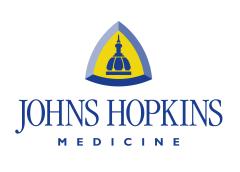 Johns Hopkins Medicine researchers have revamped an anti-cancer drug to better target cancer cells and leave healthy tissues unharmed. Scientists have dubbed this type of targeted approach a “prodrug” — a medicine designed to release its payload in a particular area of the body and in no other areas. The Johns Hopkins-discovered prodrug, called DRP-104 (sirpiglenastat), is in early-stage clinical trials in people with advanced solid tumors. The newly published studies in mice show that the augmented drug preferentially eliminates cancer cells but does not harm healthy cells.
Johns Hopkins Medicine researchers have revamped an anti-cancer drug to better target cancer cells and leave healthy tissues unharmed. Scientists have dubbed this type of targeted approach a “prodrug” — a medicine designed to release its payload in a particular area of the body and in no other areas. The Johns Hopkins-discovered prodrug, called DRP-104 (sirpiglenastat), is in early-stage clinical trials in people with advanced solid tumors. The newly published studies in mice show that the augmented drug preferentially eliminates cancer cells but does not harm healthy cells.
“Our goal was to modify an old cancer drug that had shown robust efficacy but was too toxic, especially to the gut, to be developed clinically. To do this, we used a prodrug approach. What is unique about our approach is that we utilized a novel chemistry design to create a prodrug that was simultaneously bio-activated in cancer cells but bio-inactivated in healthy tissues such as the gut. This preferential targeting of the payload to cancer cells is now enabling this efficacious class of drugs to be reevaluated safely in people,” says study author Barbara Slusher, Ph.D., M.A.S., director of the Johns Hopkins Drug Discovery Program and professor of neurology, pharmacology and molecular sciences, psychiatry, neuroscience, medicine and oncology at the Johns Hopkins University School of Medicine.
The newly modified prodrug takes advantage of a common property of cancer cells: a voracious appetite for an amino acid called glutamine, which is a critical building block for proteins, lipids and nucleotides, as well as for energy formation. Rapidly growing cancer cells use a tremendous amount of glutamine, a phenomenon called “glutamine addiction,” but other healthy cells with rapid turnover, like those lining the gut, also rely on glutamine.
Co-author Rana Rais, Ph.D., an associate professor of neurology and pharmacology, says, “DRP-104 is a tumor-targeted prodrug of the glutamine mimic drug called DON (6-Diazo-5-Oxo-L-norleucine), which inhibits multiple glutamine-utilizing enzymes in cancer cells. Many early studies of DON showed it was robustly efficacious in people and mice, but its development was halted due to its toxicity to normal tissues, especially the gut.”
Click here to read more vist HopkinsMedicine.org
